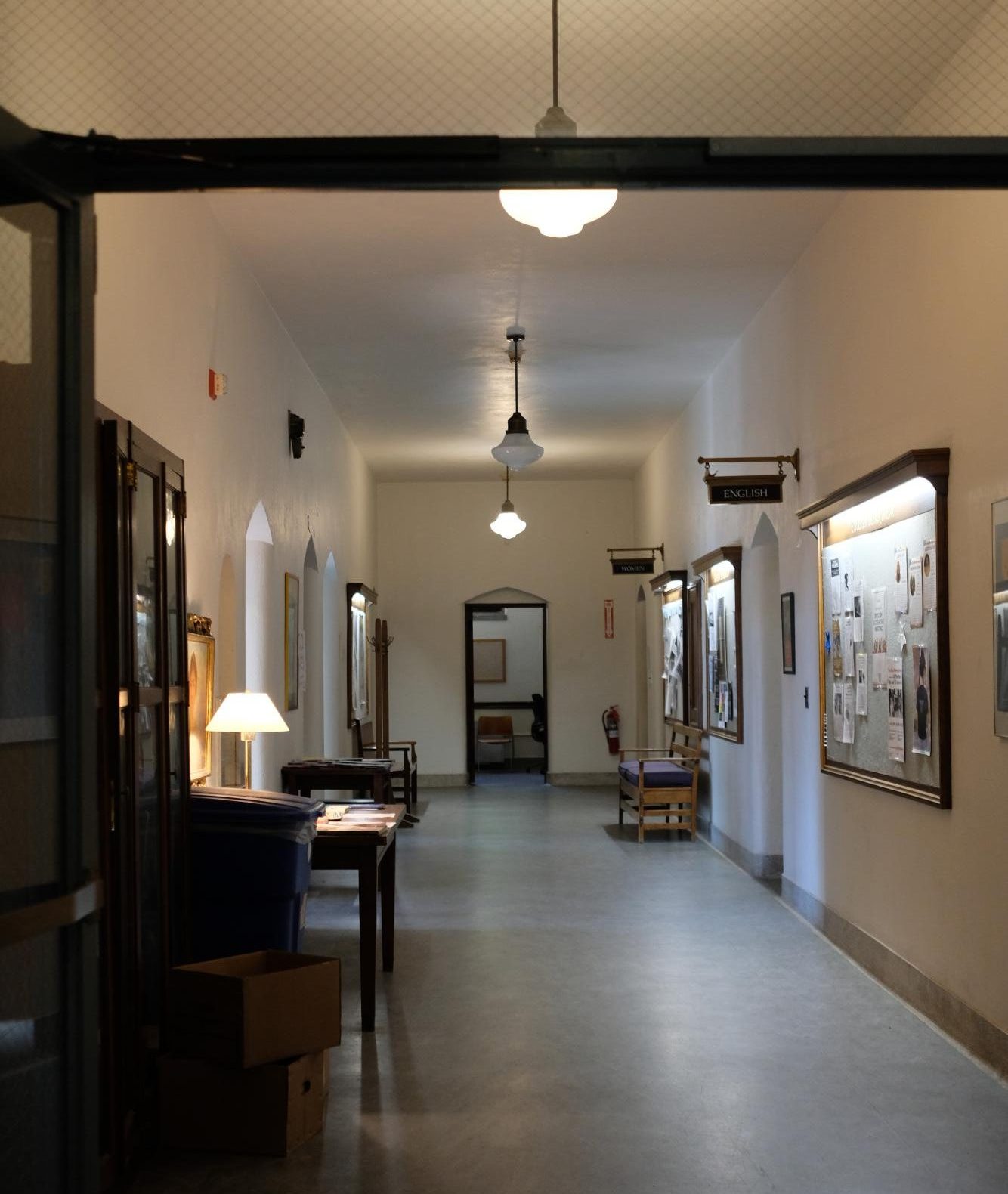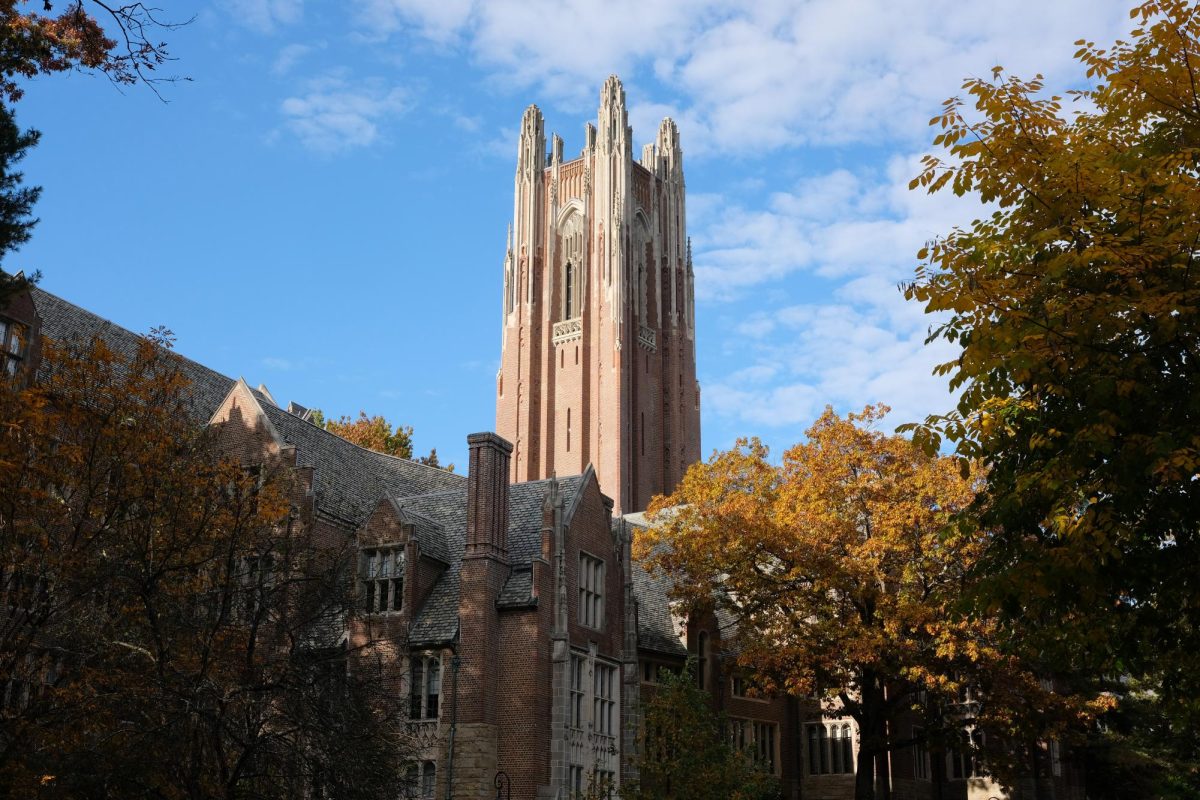Language departments are grappling with dropping student interest on campus. While Wellesley still requires taking a language to graduate, enrollment in language courses has been sharply declining.
This comes as part of a broader trend as humanities programs, and language programs specifically, face cuts and under-enrollment across the country.
From the 2007-2008 academic year to the 2023-2024 academic year, there has been a roughly 37%decrease in the average language department enrollments. Language course enrollment, which peaked at 198 students during the 2009-2010 academic year, has declined to a low of 118 students in the 2023-2024 academic year.
“Our classes always tend to be fairly small, but I think that if you look at the languages and also the humanities more broadly, there have been decreases in enrollment across the board,” said Professor Anjeana Hans, chair of German studies.
This trend is similarly reflected in the number of language majors in the past ten graduating classes. There was a peak of 95 language majors in the class of 2016, but that number has since dropped to 62 in the class of 2024. Most language majors were also majoring in an additional subject. Between 2014 to 2023, more than half of language majors graduated with a second major, with 15% of these second majors being a STEM subject.
Even though fewer students chose to major in languages, the number of language minors has been on the rise, with only 8 minors in the entire class of 2015 and 20 in the class of 2024.
Students Miss 101 Window
Enrollment in introductory 101-level language classes at Wellesley College has almost halved over the past 15 years, falling from 312 students in the 2008-2009 academic year to just 184 in 2023-2024.
Typically, students take four semesters of a language to complete the language requirement, starting with 101, with exceptions for native speakers or students who studied languages at high levels in high school to take fewer classes or no language courses at all.
This declining trend raised questions and concerns among faculty that students might miss the window to optimize their language journey at Wellesley. As language courses require a year-long sequence, students cannot start with any introductory language classes in the spring, delaying completing their requirements and qualifying for advanced study.
“It’s important to start your first year if you think of studying abroad,” said Scott Gunther, chair of French and Italian studies. “[Our language courses are] in two semesters that go together … if you miss the fall semester, you usually have to wait.”
Language Immersion Study Abroad Declines
This late start then affects study abroad enrollments, where students largely chose English-taught study abroad programs over immersive language programs.
Over the past ten years, the percentage of students studying abroad in a language immersion program has declined from 26% to 18%, according to data from the Office of International Study.
“All of our immersion programs have a high prerequisite in terms of languages, and students are not starting language when they get to the college in their first semester,” said Jennifer Thomas-Starck, director of International Study.
English-taught programs, such as DIS Copenhagen and Oxford, are becoming increasingly popular, partly because these programs appeal to students and parents alike due to their perceived familiarity, safety and brand recognition.
“Students see the ease,” Thomas-Starck said. “They can pull out the syllabus and hand it to their faculty member. They know there’ll be a group of people they know — it’s a very comfortable experience.”
As part of efforts to increase student support and visibility about language immersion programs, the Office of International Study hires students who have returned from abroad as “Study Abroad Ambassadors.”
Those who came back from immersion programs see their role as crucial to helping students make more informed decisions about whether an immersive program is right for them.
“People have very different experiences with immersive programs, because they are hard and exhausting, and they're sometimes very different from the way that a Wellesley semester would work,” said Abby Frankel ’25, a student ambassador for immersive French language program Wellesley-in-Aix. “I think people also get scared because people who have bad experiences tend to be more vocal.”
Challenges to Language Study
To encourage students to start taking their language requirements and thinking about their studying abroad options earlier, Wellesley’s language departments hope to make available courses and program applications more visible to students. Faculty note that awareness of language programs is hindered by outreach hurdles. Unlike peer institutions, such as Middlebury College, Wellesley does not market itself as a school for language learning, explained Gunther.
“There are a lot of languages taught here. There are a lot of languages just spoken here,” said Gunther.
Students may also be discouraged due to external pressures and the time investment of learning a language.
“It takes a long time to get real fluency, real command of a language,” said Josh Lambert, professor of Jewish studies and English.
Moving Forward
The College has already cut down on course offerings taken in response to lower student enrollments in language courses. Starting in the 2022-23 academic year, 100-and 200-level courses in the Hindi/Urdu department were offered every other year, instead of every other semester.
“I think it obviously adds to the problem of enrollments, right? Because if you're a first year and you're ready to take introductory Hindi/Urdu but you find out that, oh, it's not offered this year, you're probably not going to be able to wait until next year,” said Nikhil Rao, professor of History and South Asia studies.
The administrative change has had a noticeable effect. During the 2021-2022 academic year, prior to the change, the program had 21 enrollments. After the change for the 2022-2023 year was instituted, enrollment dropped to 10.
Wellesley students can no longer take Hebrew at Wellesley, and must instead cross-register at Brandeis University.
Wellesley’s Hebrew classes often ran the risk of not running due to extremely low enrollment. The Jewish studies department chose not to fill the position after the previous instructor left.
“I said, I don't think [hiring a new instructor] is the right thing to do, because … I've personally seen how difficult it is for students and for the professor,” recalled Lambert.
Despite the setbacks, administrators and professors remain actively engaged in thinking about ways to improve communications with students.
Eve Zimmerman, Professor of Japanese, described feeling “encouraged” after meetings with language chairs and members of administration, including Michael Jeffries, dean of Academic Affairs, and Stacie Goddard, associate provost for Wellesley in the World.
In an email to The News, the College said that there are no administrative changes, such as mergers or cuts, currently planned and any future changes would result from “collaborative decisions between academic departments and the Provost’s Office.”
Looking ahead, faculty suggest that addressing these trends will require a multi-pronged approach that involves students as well as administration.
“It’s students speaking to other students. That’s what’s going to make the difference,” Zimmerman observed.
With these efforts, faculty members remain optimistic that language learning supports professional and cultural leadership, a core goal of Wellesley’s liberal arts education.
“I would be much happier if we taught and had full classes of 10 more, 15 more languages.” said Lambert, “We would forward that mission of what they call now Wellesley in the World. And what I believe, in a real way, is the possibility for Wellesley students to be leaders.”
Contact the editors responsible for this story: Galeta Sandercock, Sazma Sarwar, and Valida Pau







